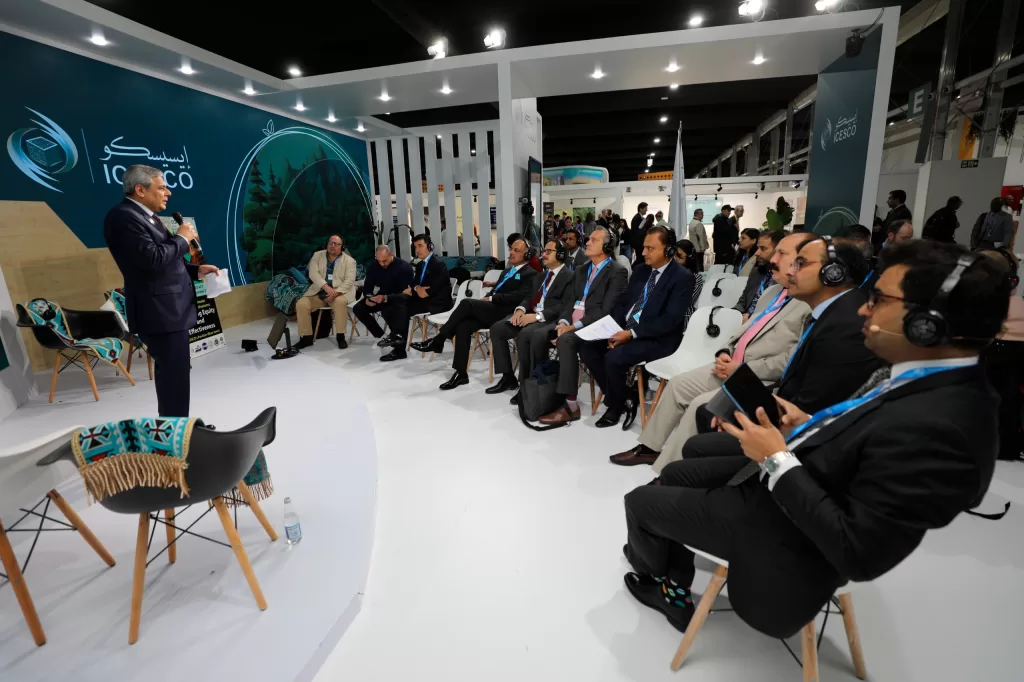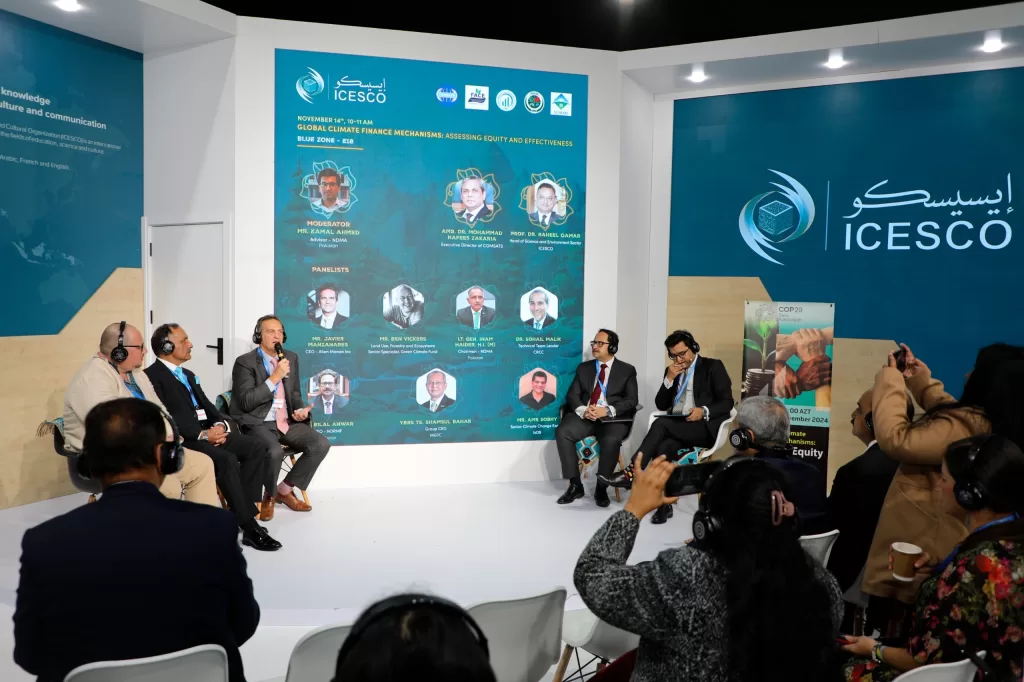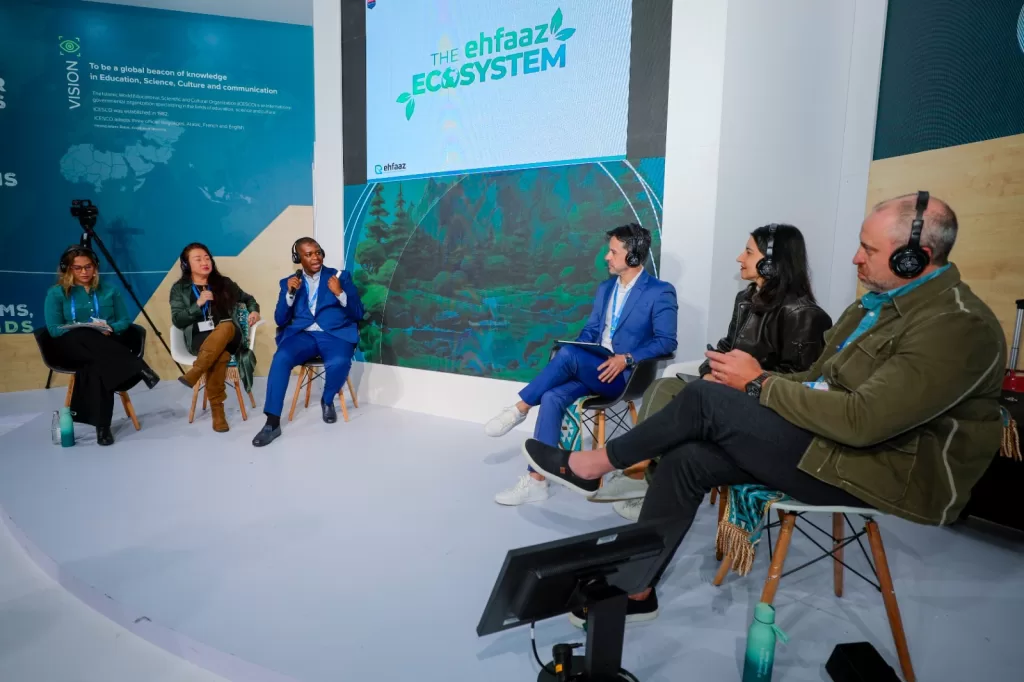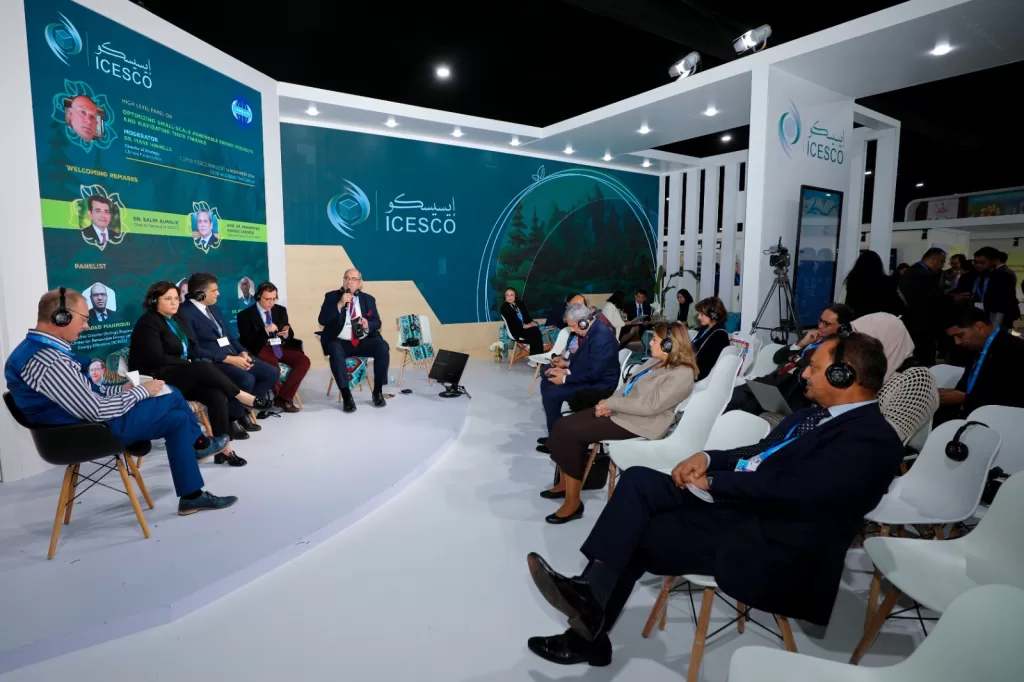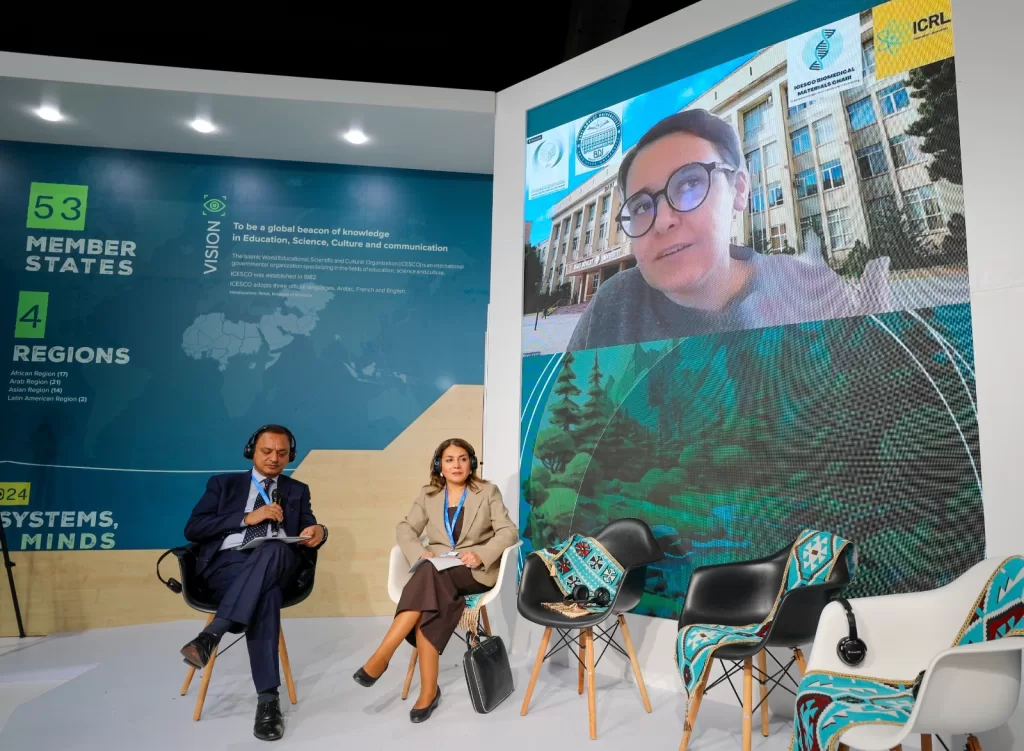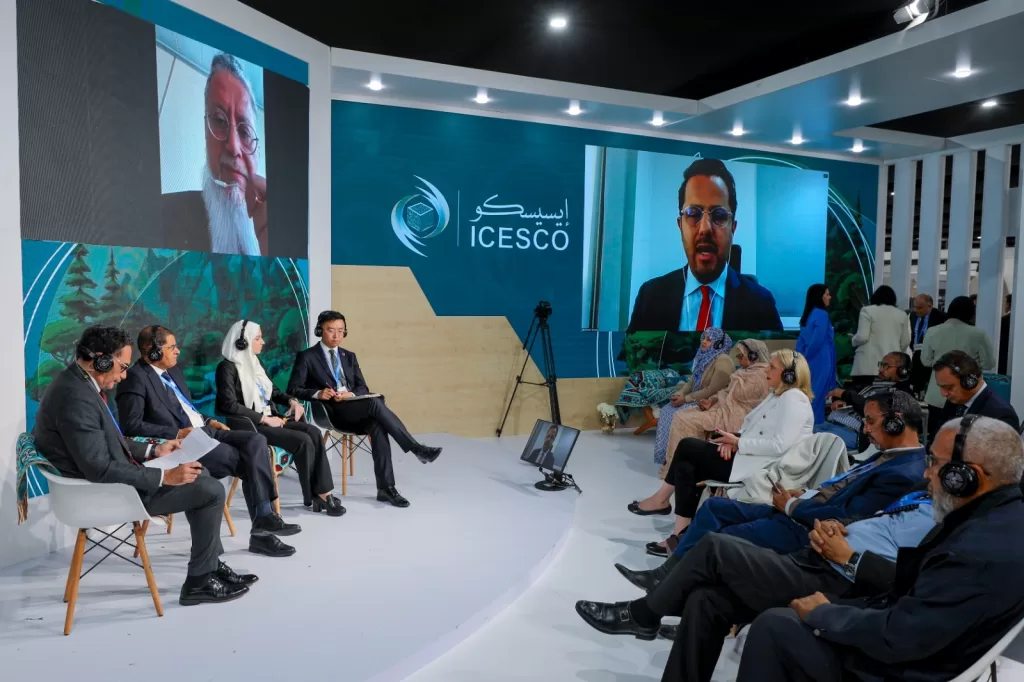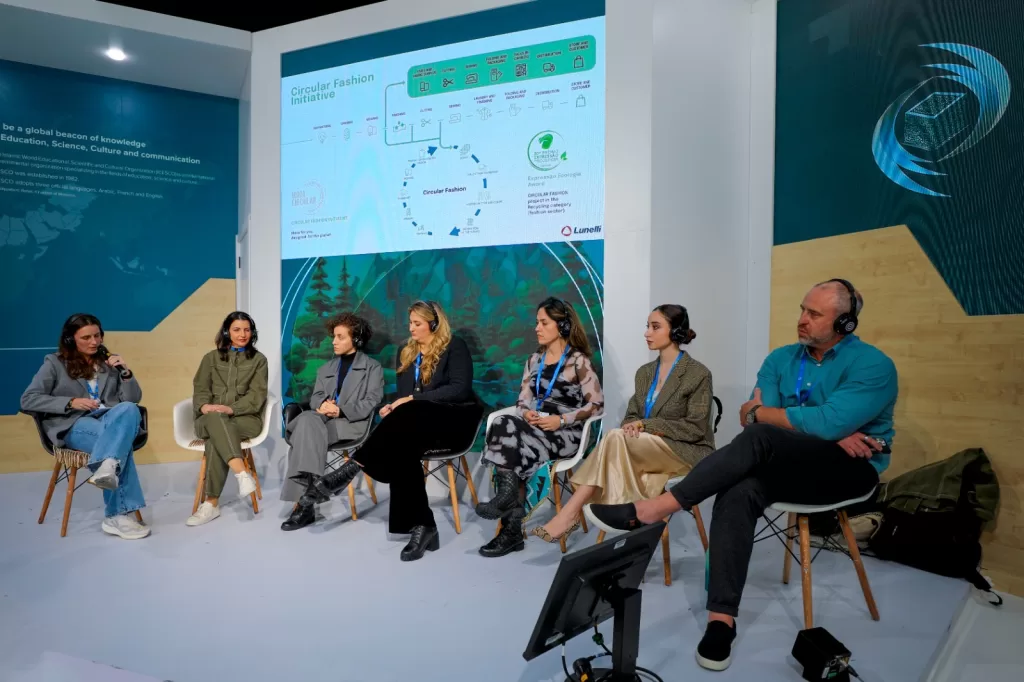
High-Level Meetings and Engaging Panel Discussions in ICESCO Pavilion at COP29
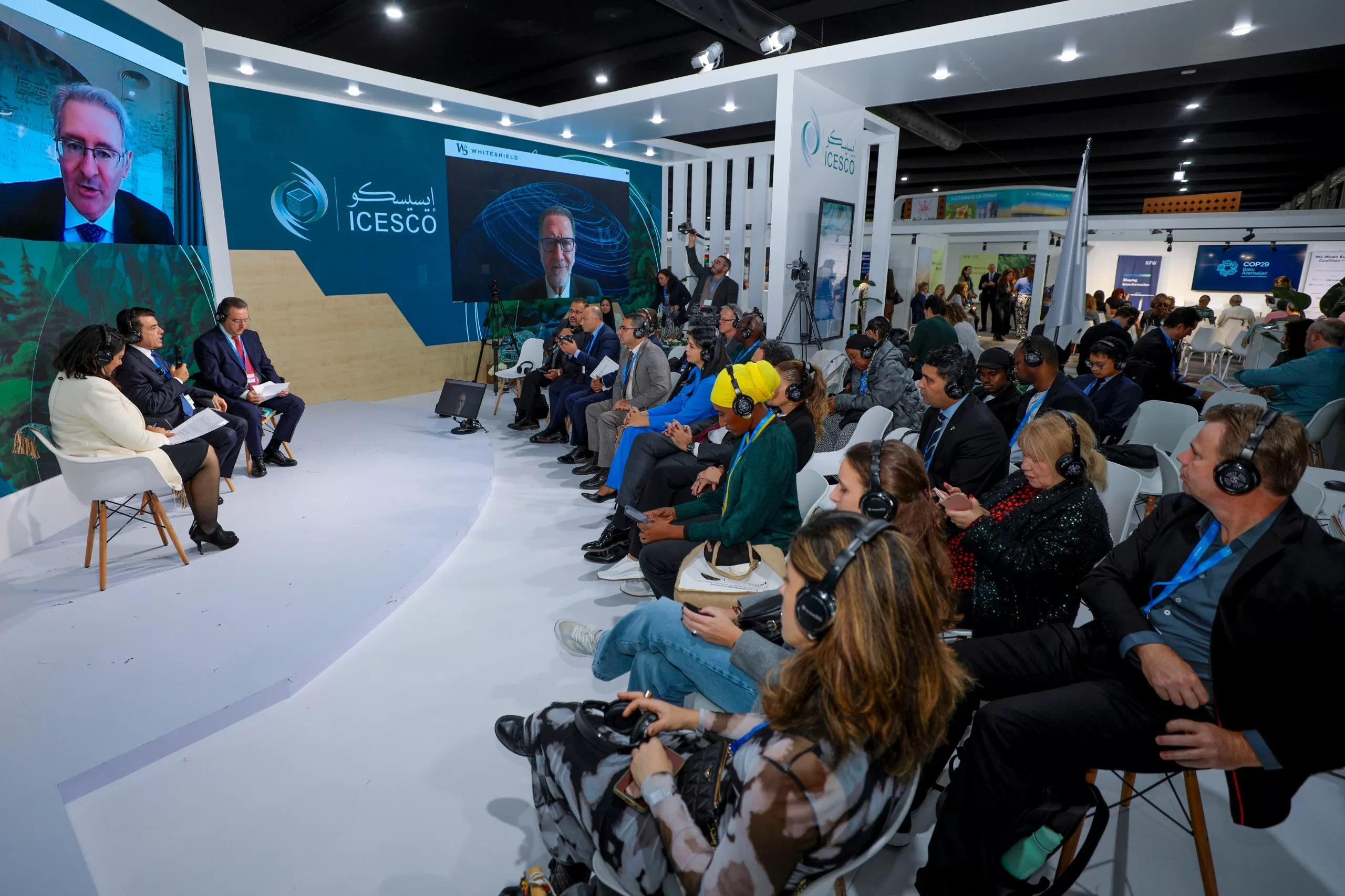
15 November 2024
The Pavilion of the Islamic World Educational, Scientific, and Cultural Organization (ICESCO) at the 29th Conference of the Parties to the United Nations Framework Convention on Climate Change (COP 29) featured significant activities on Thursday 14 November 2024. Dr. Salim M. AlMalik, ICESCO Director-General, met several distinguished guests who visited the Pavilion, which hosted eight panel discussions addressing key topics within the Organization’s areas of action.
Throughout the day, Dr. AlMalik held meetings with several high-level figures at ICESCO Pavilion, exploring avenues to strengthen cooperation between ICESCO and their respective entities on issues of mutual interest.
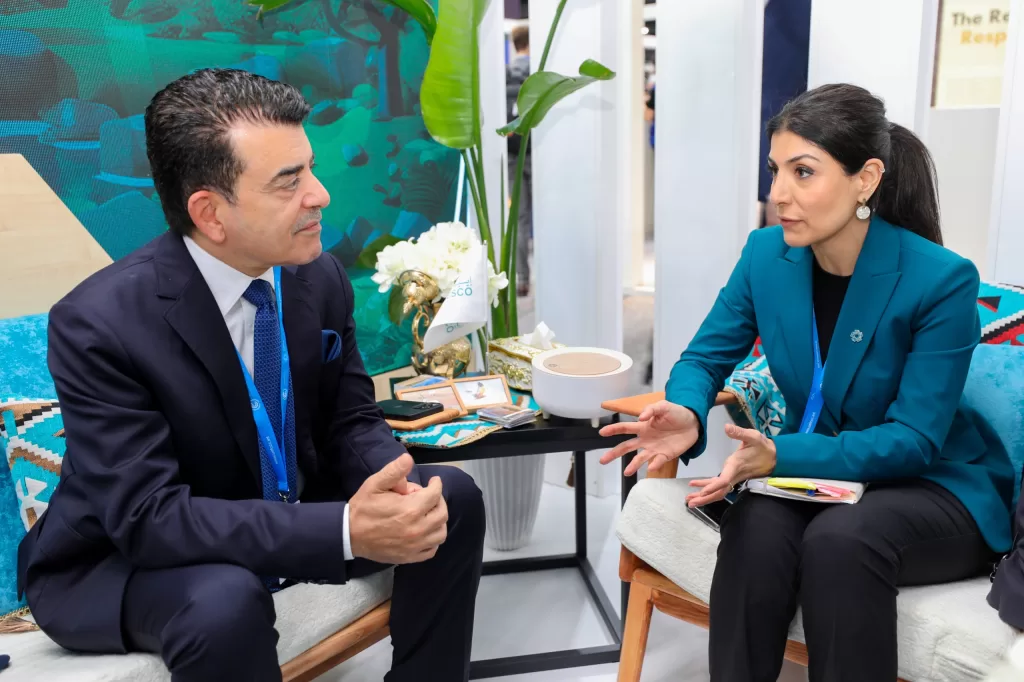
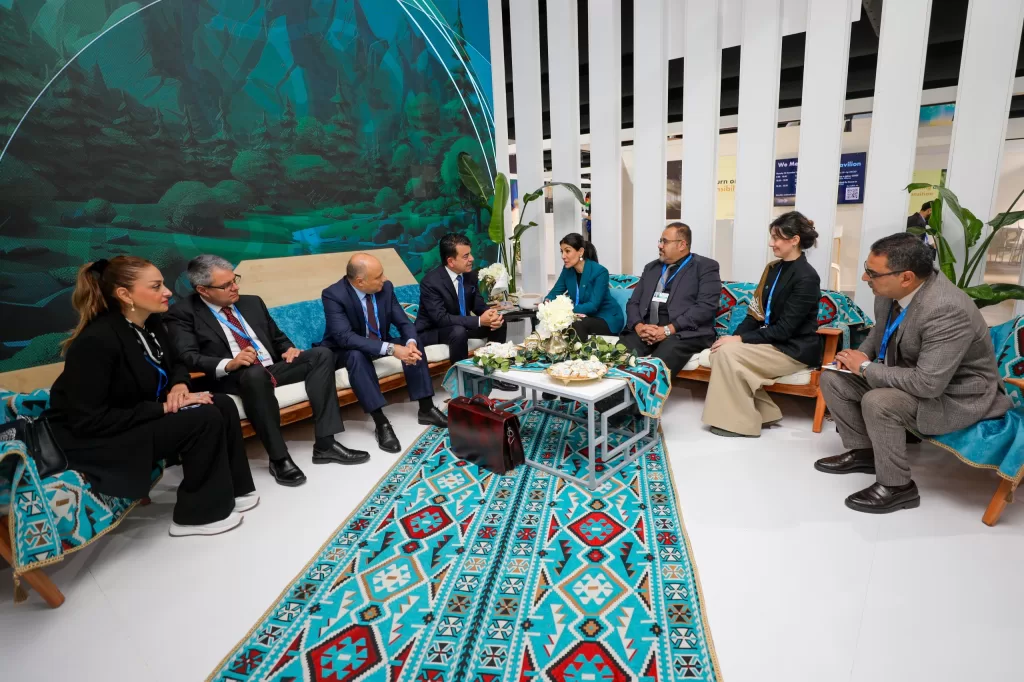
These included a meeting with Ms. Nigyar Arpadarai, UN Climate Change High-Level Champion for COP29; Mr. Elnur Aliyev, First Deputy Minister of Economy of Azerbaijan; and Mr. Ulvi Mehdiyev, Chairman of the State Agency for Service to Citizens and Social Innovations under the President of the Republic of Azerbaijan (ASAN Service).
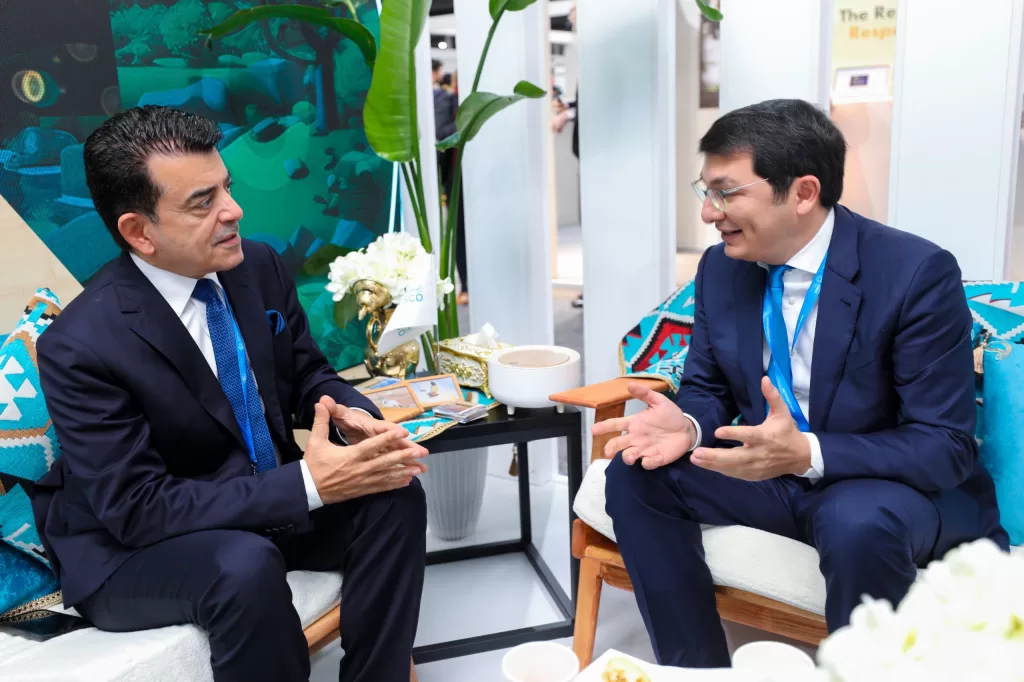
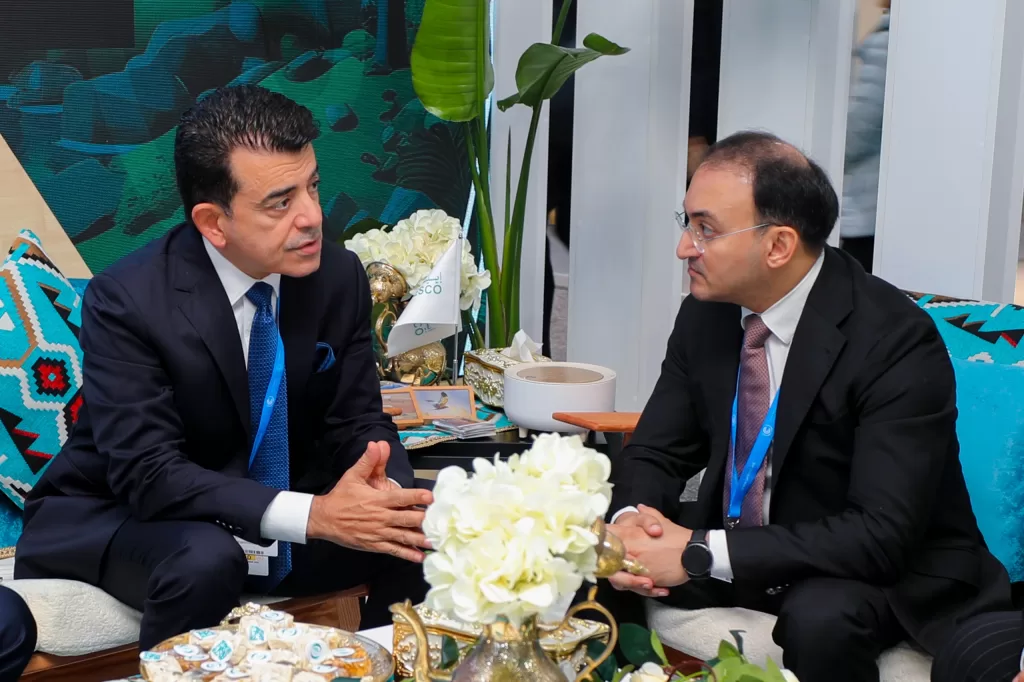
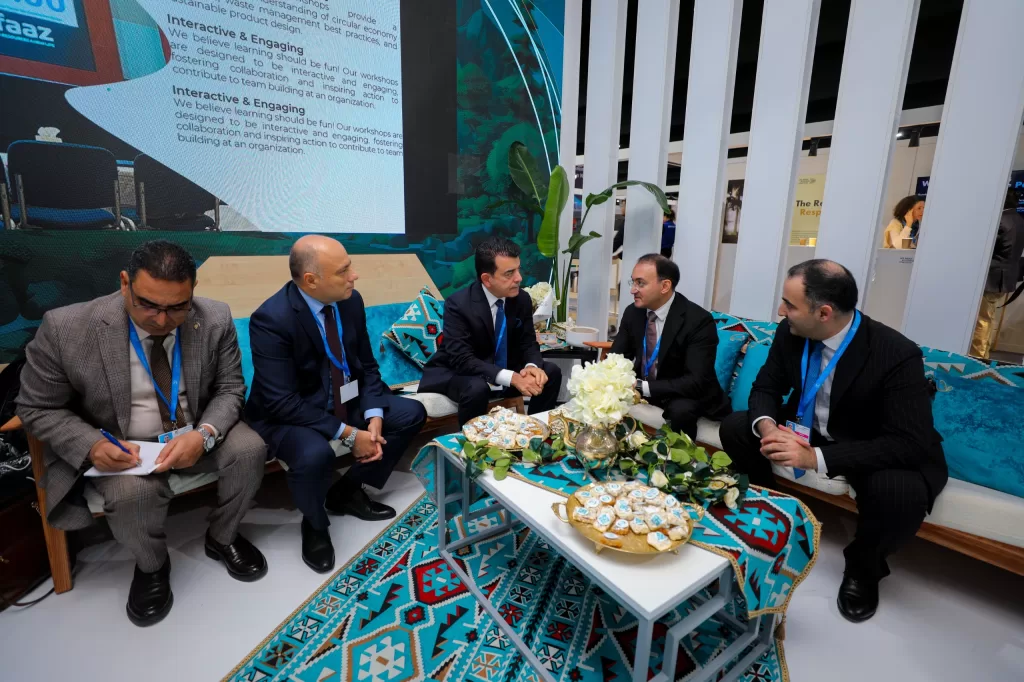
Moreover, the program at ICESCO Pavilion featured a series of discussions. The first panel focused on “Global Climate Finance Mechanisms: Assessing Equity and Effectiveness,“ followed by a second panel on “Accelerating the Implementation of the 2030 Agenda.” The third session tackled the launch of a report titled “Developing Best Practices and Standards for Small-Scale Renewable Energy Projects.”
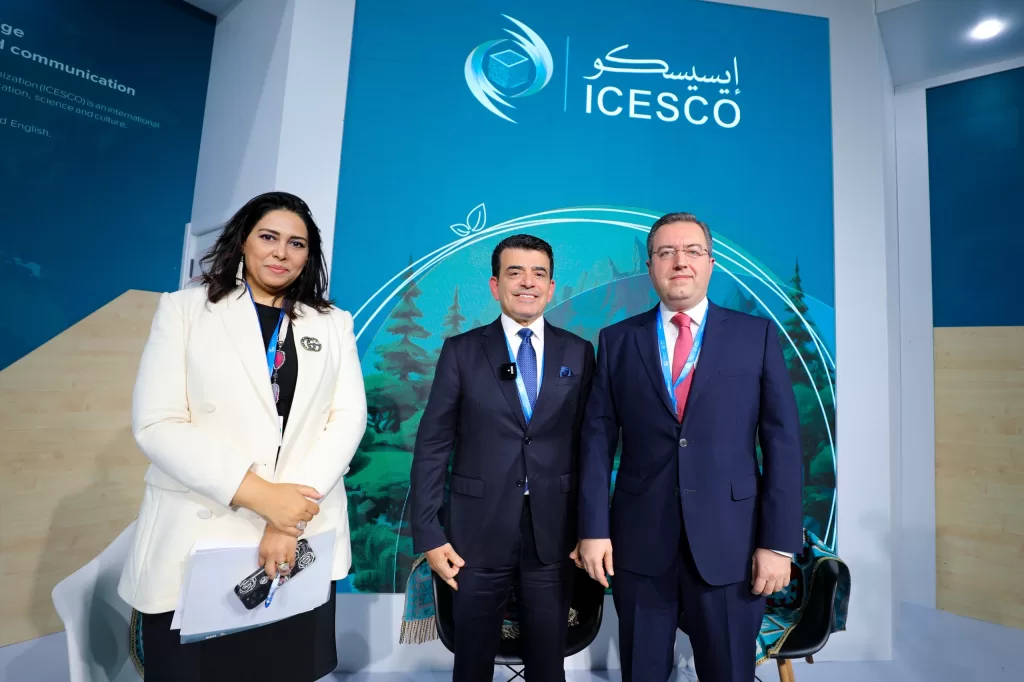
The fourth panel explored mechanisms to enhance small-scale renewable energy projects and discussed avenues for their financing, while the fifth session delved into the “Carbon Capture Technology Development Fund.” The sixth panel presented the “Global Labor Market Resilience Index.” The seventh session examined opportunities for utilizing available resources to mitigate the impact of climate change on cultural heritage. The final panel discussion focused on “Climate Fashion Technology Beyond 2030.”
